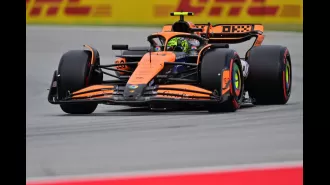Putin is sending North Korean soldiers to the Ukrainian border.
The progress is concerning, but expected.
October 17th 2024.

Recently, there have been reports of a secret training unit in Russia's far east. However, a senior Ukrainian military intelligence official has now warned that Russia is bringing in thousands of North Korean soldiers to fight on the Ukrainian frontline. This information was shared by Ukrainian President Volodymyr Zelenskyy in a recent speech to parliament, where he referred to the coalition of criminals that his country is up against. President Zelenskyy also mentioned that intelligence records have shown not just the transfer of weapons from North Korea to Russia, but also the transfer of people.
According to a Ukrainian intelligence official, these North Korean soldiers are part of a group known as the Buryat Battalion, and there are an estimated 3,000 of them currently in Russia. Some media sources have also claimed that an additional 10,000 North Korean soldiers have been sent to Russia to assist in the fight against Ukraine. While this may be a concerning development, experts believe that it is not unexpected. In fact, Chatham House Russia expert Keir Giles explains that the involvement of North Korean troops in Russia's efforts in Ukraine is a natural progression, given the increasing support Russia has been receiving from other rogue states.
For example, in September of this year, the United States and United Kingdom accused Iran of supplying short-range ballistic missiles to Russia for use in the war against Ukraine. China, another ally of Russia, also participated in military exercises in Belarus earlier this year, which were seen as a provocation towards NATO. According to Mr. Giles, these countries, along with North Korea and Russia, have formed a "community of interest" where they meet each other's needs. In the case of North Korea, they are providing Russia with weapons and manpower in exchange for assistance in challenging the West in their own region.
It has been reported that Russia is facing difficulties in providing enough ammunition and weapons for the war in Ukraine. In addition, several Russian arms depots have been destroyed in kamikaze drone strikes, further depleting their resources. Mr. Giles believes that the growing partnership between these countries, all of whom have a shared goal of challenging and harming the West, is a result of the West's reluctance to fully confront Russia over their aggressive actions.
The question now is, why has North Korea decided to join the war effort? According to the Institute for the Study of War, recent Ukrainian invasions into Russian territory may have inadvertently drawn North Korea into the conflict. In August, Ukrainian forces made a cross-border incursion into Kursk Oblast, capturing a significant amount of Russian territory. This move exposed Russian vulnerabilities, but it may have also prompted them to seek support from North Korea.
The South Korean Ministry of Defense has stated that they are closely monitoring reports of North Korean troops joining the Russian military. According to Ukrainian outlets, citing anonymous military intelligence sources, a 3,000-person battalion consisting of North Korean citizens is being formed as part of the 11th Russian Airborne Brigade, based in Kursk Oblast.
If these reports are true and North Korean soldiers are indeed deployed to the frontlines in Ukraine, it could have serious implications for the future of the war. Mr. Giles warns that this could lead to more acts of aggression around the world if the West does not respond. He believes that Russia stands to gain a lot from this arrangement on their Ukrainian front, but the consequences could be detrimental to global security in the near future.
So far, the involvement of foreign troops in Russia's war effort has been limited in value. However, if North Korea were to provide organized and formed units to Russia, the impact could be significant. These soldiers could be used for engineering or support roles, or even in direct attacks on Ukrainian forces. It remains to be seen how this development will affect the ongoing conflict in Ukraine and the broader international landscape.
According to a Ukrainian intelligence official, these North Korean soldiers are part of a group known as the Buryat Battalion, and there are an estimated 3,000 of them currently in Russia. Some media sources have also claimed that an additional 10,000 North Korean soldiers have been sent to Russia to assist in the fight against Ukraine. While this may be a concerning development, experts believe that it is not unexpected. In fact, Chatham House Russia expert Keir Giles explains that the involvement of North Korean troops in Russia's efforts in Ukraine is a natural progression, given the increasing support Russia has been receiving from other rogue states.
For example, in September of this year, the United States and United Kingdom accused Iran of supplying short-range ballistic missiles to Russia for use in the war against Ukraine. China, another ally of Russia, also participated in military exercises in Belarus earlier this year, which were seen as a provocation towards NATO. According to Mr. Giles, these countries, along with North Korea and Russia, have formed a "community of interest" where they meet each other's needs. In the case of North Korea, they are providing Russia with weapons and manpower in exchange for assistance in challenging the West in their own region.
It has been reported that Russia is facing difficulties in providing enough ammunition and weapons for the war in Ukraine. In addition, several Russian arms depots have been destroyed in kamikaze drone strikes, further depleting their resources. Mr. Giles believes that the growing partnership between these countries, all of whom have a shared goal of challenging and harming the West, is a result of the West's reluctance to fully confront Russia over their aggressive actions.
The question now is, why has North Korea decided to join the war effort? According to the Institute for the Study of War, recent Ukrainian invasions into Russian territory may have inadvertently drawn North Korea into the conflict. In August, Ukrainian forces made a cross-border incursion into Kursk Oblast, capturing a significant amount of Russian territory. This move exposed Russian vulnerabilities, but it may have also prompted them to seek support from North Korea.
The South Korean Ministry of Defense has stated that they are closely monitoring reports of North Korean troops joining the Russian military. According to Ukrainian outlets, citing anonymous military intelligence sources, a 3,000-person battalion consisting of North Korean citizens is being formed as part of the 11th Russian Airborne Brigade, based in Kursk Oblast.
If these reports are true and North Korean soldiers are indeed deployed to the frontlines in Ukraine, it could have serious implications for the future of the war. Mr. Giles warns that this could lead to more acts of aggression around the world if the West does not respond. He believes that Russia stands to gain a lot from this arrangement on their Ukrainian front, but the consequences could be detrimental to global security in the near future.
So far, the involvement of foreign troops in Russia's war effort has been limited in value. However, if North Korea were to provide organized and formed units to Russia, the impact could be significant. These soldiers could be used for engineering or support roles, or even in direct attacks on Ukrainian forces. It remains to be seen how this development will affect the ongoing conflict in Ukraine and the broader international landscape.
[This article has been trending online recently and has been generated with AI. Your feed is customized.]
[Generative AI is experimental.]
0
0
Submit Comment





